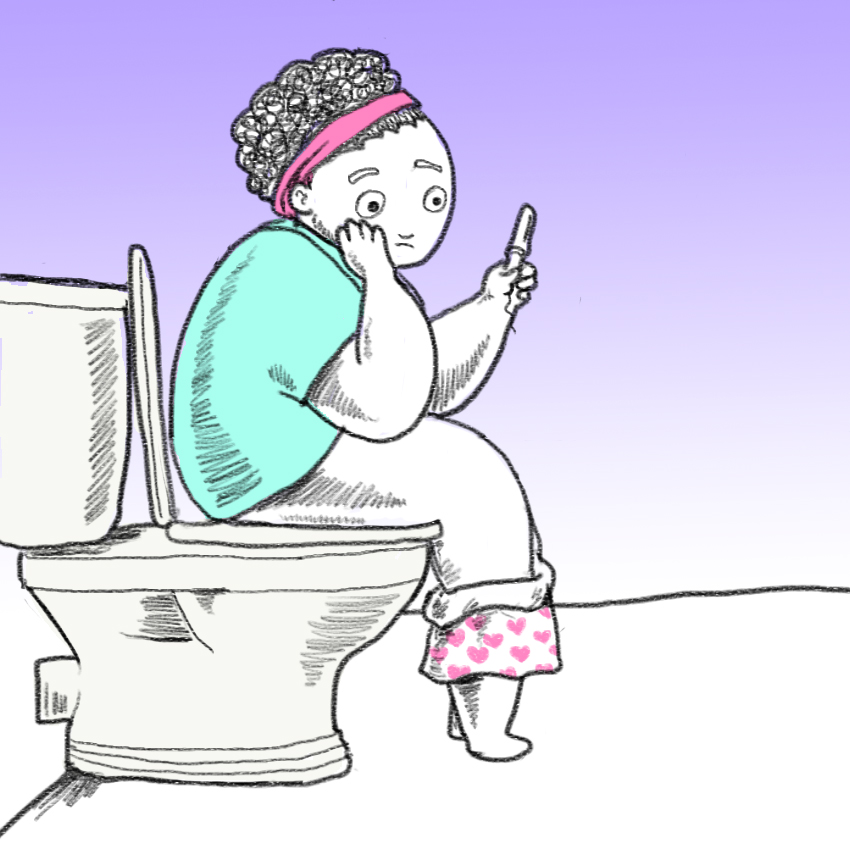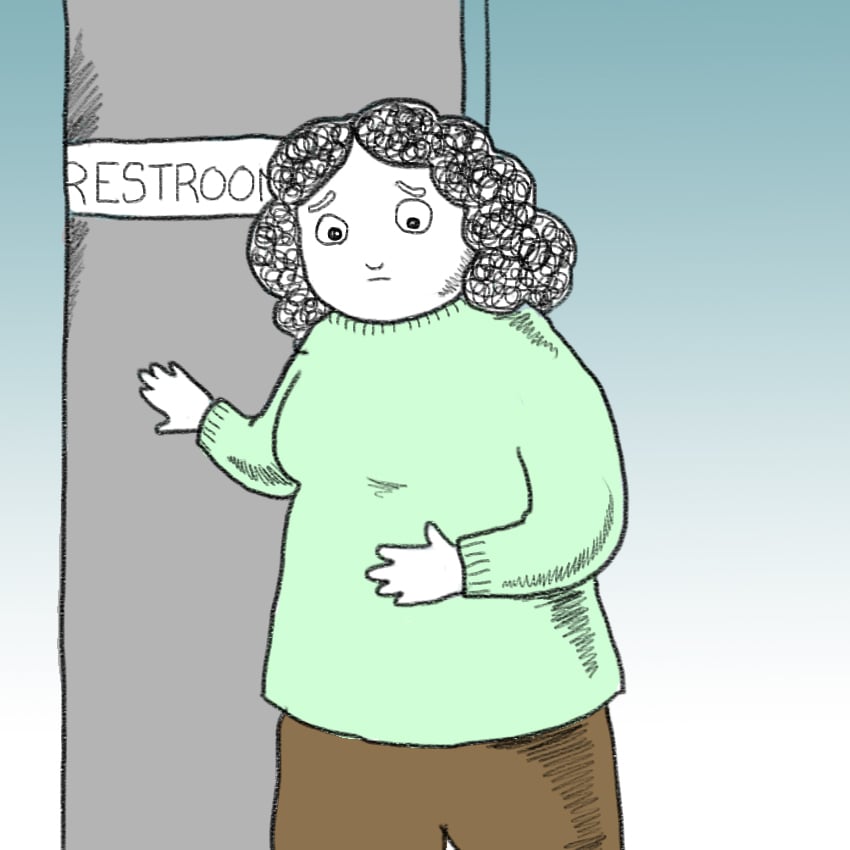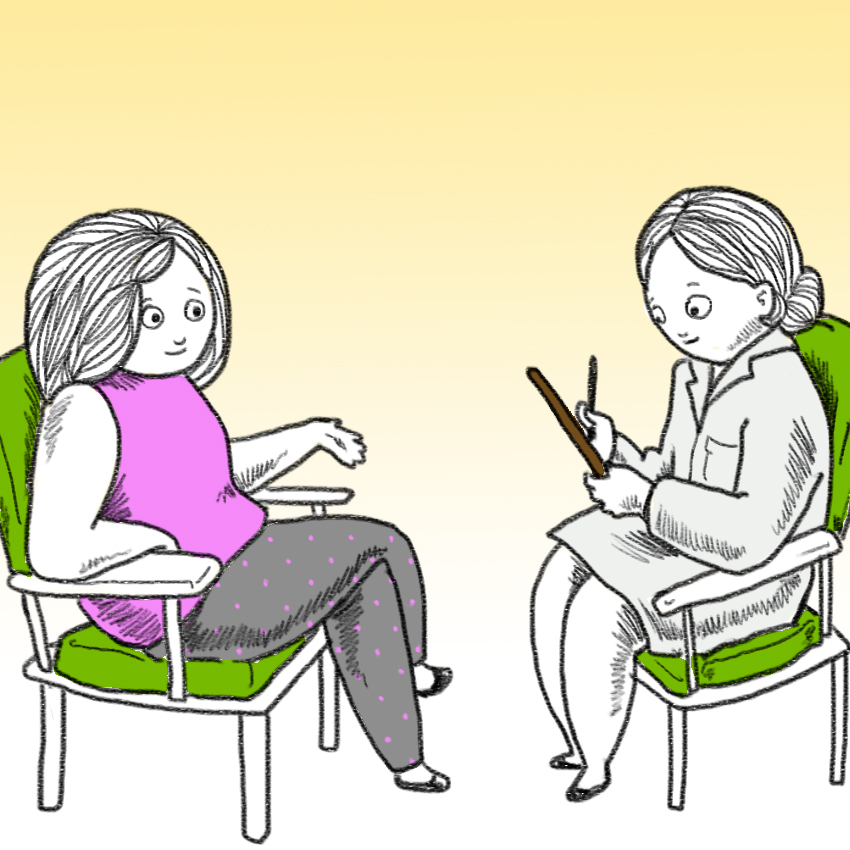Someone once told me that if you tell your doctor you have one drink per week, they round that up to three or four because many people minimize their "bad" habits so their doctors won't judge them.
I don't know if that statement is true, but I do know that most of us fudge the details a little when we're talking to our doctors, whether intentionally or accidentally.
For example, I've probably never accurately told a doctor the day my symptoms started because I just can't remember. On the other hand, I've definitely intentionally lied before when a doctor asked if my bowel movements were "regular" because I felt uncomfortable.
We all assume that these little lies are harmless; sure, maybe I don't work out 4 hours a week, but I did once a few weeks ago — that counts, right?
Apparently not. Lying to your doctor is never a good idea, but most of us do it because we don't want to be judged or scolded for our actions.
Here's the thing — doctors have literally heard it all. Almost nothing you can say will surprise them. It's their job to not judge people, and they can almost always help with your awkward problem without making you feel uncomfortable.
Read on to find out the top 10 things you should never ever lie to your doctor about!
Don't Lie About...Your Mental Health

Many people don't tell doctors when they're having mental health problems, because it's often stigmatized.
The truth is that although there be a stigma in society surrounding mental health problems, there should be absolutely no stigma in a doctor's office.
If you think your mental health problem is embarrassing, or think it's not a real problem, or think you're overreacting — it's not.
Tell your doctor about whatever is going on; they can help you, or recommend another professional who can help you.
You would immediately go to the doctor if you thought you broke your ankle. It shouldn't be any different if you have emotional or mental ailments.
Don't Lie About...Your Last Period

If your period is painful or wonky, you need to tell your doctor. Even if you've always had an irregular period, tell your doctor if it seems more irregular than normal.
From pregnancy or stress to nutrient deficiencies or menopause, there are a lot of reasons why your period might be irregular.
If your period is painful or not showing up at the right time, your doctor can help figure out the underlying cause.
Don't Lie About...The Medications You're Taking

Doctors really need to see the full picture when it comes to your health, so don't fib when it comes to medications.
Make sure you tell them about all prescription and non-prescription medications (including vitamins!) you're using. Even things like ibuprofen can have an impact on your health, so be honest.
According to Everyday Health, medications can cause a variety of serious problems, including stroke, heart attack, and elevated blood pressure.
To make sure you aren't at risk for any of these problems, disclose your medication use with your doctor.
Additionally, if you're skipping prescription medications, don't tell your doctor you're taking them! They need to know if you're not taking them, and why.
Maybe your prescription has side effects you can't handle or it is too expensive — your doctor may have solutions, but they can only help you if you tell them the truth.
Don't Lie About...Your Cigarette Habits

According to a study published in 2013, almost 13 percent of smokers have withheld their smoking status from their healthcare providers — that's more than 1 in 10 people!
If you think your doctor will judge you for smoking, think again. Your doctor probably treats a ton of smokers, so they won't make you feel bad about it.
Some medications can be dangerous to mix with cigarettes, so doctors definitely need to know if you're a smoker before they prescribe anything.
Additionally, in order to diagnose any health issues you're having, doctors need to rule out potential causes — and cigarettes impact many different parts of your body and health.
Don't Lie About...Your Pooping Schedule

Most of us don't enjoy talking about our bathroom habits, but if you have questions or concerns about your gut health, it's important to discuss it with your doctor.
From the texture of your poop, to the color, to the regularity of it, your doctor needs to know!
How and when you poop says a lot about your colon, intestines, stomach, diet, and more — so don't be shy!
And don't be embarrassed. Your doctor has heard and seen it all, and they won't judge you for sharing the details.
Don't Lie About...Recreational Drug Use

You should always tell your doctor if you are using any recreational drugs, even if you only use them once in a while.
Even if what you're doing is illegal, you should tell your doc. In most cases, they can't report you because of doctor-patient confidentiality.
Dr. Marc Leavey explains to WebMD that whether you realize it or not, you may have health issues that can be explained by past or current drug use, so your doctor needs to know in order for you to get proper care.
Don't Lie About...Your Health Habits

Many people are ashamed of their health habits — like eating properly and exercising regularly — so they try to convince their doctors they're healthier than they are.
Almost all of us are guilty of this particular offense, but Everyday Health explains that doctors can see through this fib. After all, they're the ones doing a physical exam on you.
If you're trying to lead a healthier lifestyle, your doc can give you recommendations for both eating and exercising habits.
Let your doctor know if you've indulged in the past few hours before your appointment, because it could lead to abnormal blood test results, explains WebMD.
Misinforming your doctor about your eating habits can lead to them prescribing medications you don't need, or not prescribing medications you do need.
Don't Lie About...How Much Alcohol You Consume

Dr. Brian Doyle of the UCLA School of Medicine told WebMD that only 1 in 6 people even mentions during a checkup that they drink.
He said, "Whatever a patient tells us is half of what they actually do drink."
So be honest. Chances are that if you tell your doctor that you drink less than you do, they won't believe you anyway.
If you lie about drinking, it can impact your overall longevity. Being honest with your doctor about your alcohol consumption will allow them to have a better idea of your overall health.
Plus, they can let you know if the amount you're drinking will impact your health in the future.
Don't Lie About...Your Sex Life

If you're sexually active, you need to tell your doctor. You should also make sure to tell them about any forms of birth control or protection you're using.
It's not fun to talk about, but STIs are a serious concern, and they don't always have obvious symptoms. Most STIs are treatable, but they can only be treated if you and your doctor know about them.
If sex is painful or you seem to have lost your sex drive, your doctor may be able to help, so don't be embarrassed.
Letting your doctor know about your sex life will help them know what to look out for, which will help protect you from some of those scary "down there" problems.
Bottom Line? Trust Your Doctor With The Truth!

Telling your doctor "little white lies" can sabotage your health down the road, so it's never worth it.
Everyday Health explains that other things you shouldn't lie about include family history of a disease, when your symptoms started or how they've been progressing, and how severe your symptoms are.
People fall on both sides of the spectrum when it comes to explaining symptoms — some exaggerate, while others downplay.
Try to be as accurate as possibly when describing your pain or discomfort in order to help your doctor diagnose you quickly and correctly.
If you're guilty of any of these lies, take note! Your doctor will appreciate your honesty at your next appointment.
Please SHARE this article with anyone you think could learn something from it!




